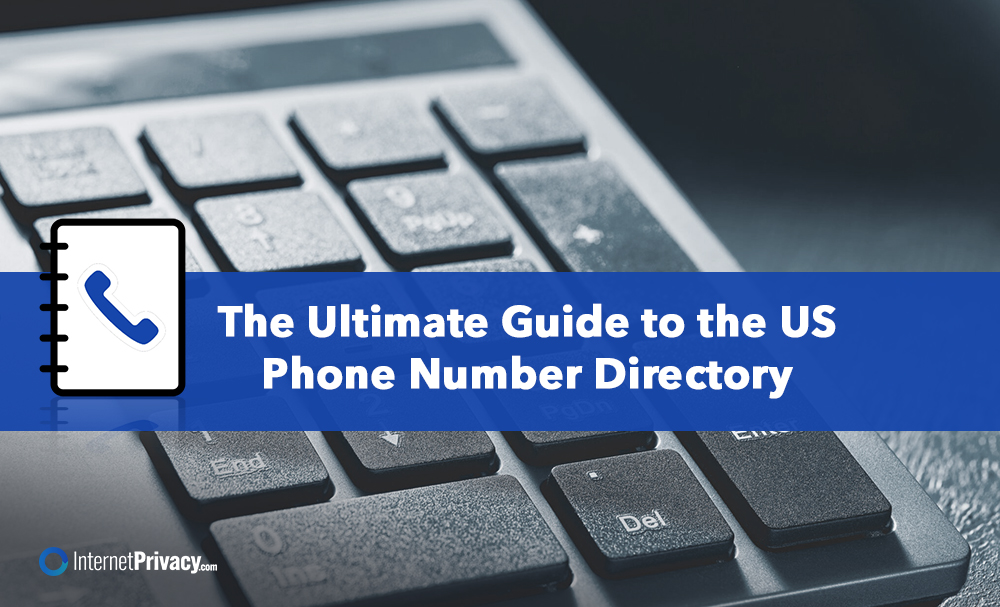The Ultimate Guide to the US Phone Number Directory

Need to find a phone number in the US quickly? A US phone number directory is your go-to solution, whether you’re searching for a person or a business.
Understanding US Phone Number Directories
US phone number directories are organized listings with residential and business contact information, helping users locate the phone numbers and addresses they need. These directories are often categorized based on geographic regions, making it easier for users to find local contacts. Imagine needing a plumber in your area; a regional directory swiftly narrows your search.
Phone directories are critical tools for personal and business communication, facilitating connections between individuals and organizations. Listing businesses’ contact information ensures they are accessible to potential customers. At the same time, these directories can help individuals reconnect with old friends or reach out to family members.
The structure of these directories plays a crucial role in their practical use. Geographic categorization helps users quickly find the required contacts, saving time and effort.
How to Access Current US Phone Number Directories
Accessing US phone directories is now more convenient than ever, with options available in both print and digital formats. Whether you enjoy flipping through pages or prefer a quick online search, there’s a method suited to your preferences.
Local phone companies must provide a free published directory for the local calling area. You can request these printed directories directly from your provider, ensuring access to a comprehensive list of regional contacts.
Numerous online resources are available for those who prefer digital convenience. Websites like anywho.com, infousa.com, att.com/directory, and netscape.com offer extensive databases, making searching for contacts on your computer or mobile device effortless.
Using Online Phone Directory Services
Online phone directory services offer unmatched convenience. Platforms like NumLookup, used by over 3 million people each month, provide reverse phone lookups without registration, making it easy to identify unknown callers and verify addresses.
Phone number lookup tools on these platforms provide quick access to accurate contact details. Search engines can also be helpful; entering a person’s name and location often yields results, especially if they have a strong online presence.
Social media platforms like LinkedIn and Facebook often contain extensive contact information. Users frequently share phone numbers, email addresses, and other details on their profiles, making these platforms a valuable supplement to traditional directories.
Securing your connection is vital when using online directories to protect personal information. Always check for encryption protocols like HTTPS and avoid using unsecured networks to access sensitive data. It is also important to review the connection’s security to ensure safety. Additionally, some services may require verifying that you are human before accessing certain features or information.
Benefits of Using a Phone Directory
The advantages of using a phone directory go beyond finding a telephone number. These directories enhance personal safety by enabling users to identify unknown callers, a valuable feature in an era of prevalent scam calls and telemarketing.
Directories are essential for finding local businesses and services, streamlining the search for nearby restaurants or reliable plumbers. Some directories also offer additional resources like emergency service contacts, enhancing utility.
Directories frequently offer verification options for confirming addresses, ensuring accurate communication. They may also include email addresses and websites, facilitating more accessible contact with the correct address. Completing the action to verify addresses is crucial to ensure the information is accurate and secure.
Free vs. Paid Phone Directory Services
Choosing between free and paid phone directory services involves several considerations. Paid directories often offer more in-depth, regularly updated information, including background checks and access to public records, ensuring effective communication.
Free directories typically include advertisements, which can detract from the user experience. While they offer basic contact information, they may lack the comprehensive data available in paid versions. Users should weigh the trade-offs between cost and information quality.
Ultimately, the choice between free and paid services depends on specific needs. Free directories may suffice for casual searches, but investing in a paid service might be worthwhile for detailed investigations or business purposes.
Accessing Historic Telephone Directories
Historic telephone directories provide a fascinating glimpse into the past and are invaluable for research. The Library of Congress offers a digitized collection of U.S. telephone directories, including over 8,300 reels of microfilm and about 3,500 available online. The directories cover various states and localities.
Local and state libraries may also hold collections of non-digitized telephone directories. Exploring these resources can uncover valuable information about past residents, businesses, and community structures.
Accessing historic directories requires effort, but their wealth of information makes them valuable for genealogists, historians, and anyone interested in the past.
Tips for Effective Phone Number Searches
- Select the appropriate directory based on specific needs (online, print, or mobile app) to ensure effective phone number searches.
- Use search filters and advanced features offered by online directory services to refine results and locate specific contact information quickly.
- Protect your personal information and verify your identity by completing human verification prompts before accessing directories.
- Familiarize yourself with common verification prompts and respond quickly to ensure efficient, safe searches and successful verification.
Handling Directory Assistance Complaints
If you encounter issues with directory assistance services, contact the service company first. They can often resolve complaints related to incorrect information or service quality. You can also contact your local phone company or check the directory for assistance rates and policies.
Customers physically unable to use printed directories may receive free directory assistance. If contacting the directory service company does not resolve the issue, submit a complaint to the commission. Your directory assistance bill should include a toll-free number for support.
Handling complaints effectively ensures the best possible service from your directory assistance provider.
Requesting Multiple Directories
To obtain multiple print directories, users must follow the directory provider’s specific request procedures. These often involve submitting a formal request that includes details about the intended use of the directories.
Some directory services may restrict the number of directories that can be requested simultaneously. Requesting multiple directories may involve waiting periods while the provider processes the requests. Additional documentation or justification might be needed to support the request.
Understanding these procedures helps you obtain the necessary directories efficiently and without unnecessary proceeding delays.
Ensuring Privacy and Security When Using Directories
Ensuring the privacy and security of your personal information when using directories is paramount. Always ensure the website uses encryption protocols like HTTPS to safeguard sensitive data, adding an essential layer of protection when accessing online directories.
For concerns regarding directory services, consumers can contact the FCC at 1-888-CALL-FCC for assistance or file informal complaints through the FCC’s Consumer Complaint Center. Additionally, the Public Service Commission can provide support for local issues.
In addition to safeguarding your data while browsing directories, it is equally important to proactively manage how much of your personal information is publicly available. Many online phonebooks list personal details without explicit consent, which can lead to privacy risks like identity theft or unwanted solicitation. You can take control of your data by opting out of these directories.
Numerous services offer opt-out processes that allow you to request the removal of your personal details, ensuring better privacy and greater security online. Combining secure browsing habits and opting out of public listings can help protect your personal information from potential misuse.
Summary
US phone number directories are valuable resources for both personal and business use. They help identify unknown callers, locate businesses, verify addresses, and even access historical information. Whether using free or paid services depends on your specific needs and the depth of information required.
We hope this guide has given you the tools and knowledge to navigate phone directories effectively. By following our tips and ensuring privacy and security, you can make the most of these indispensable resources. Happy searching!





